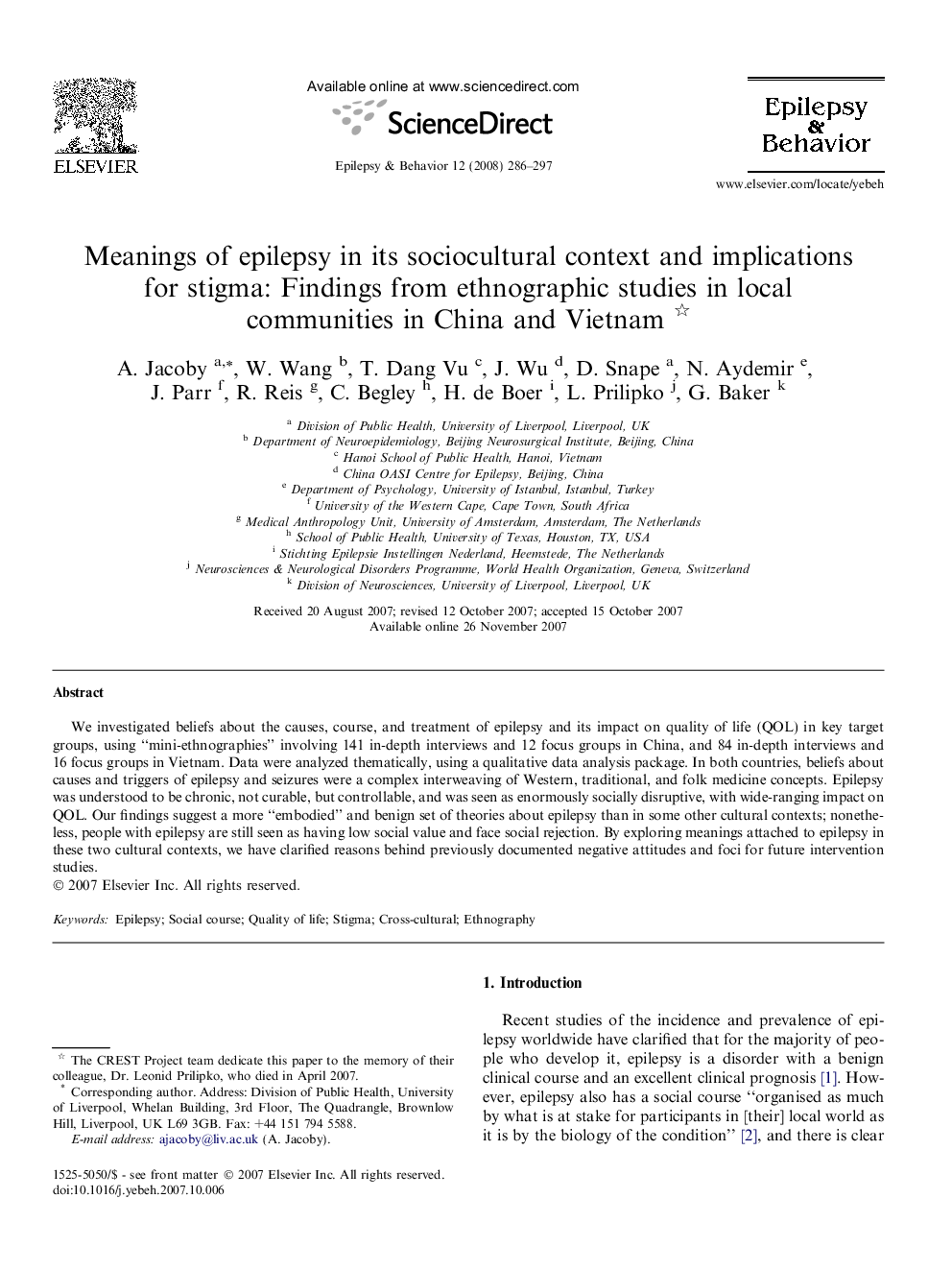| کد مقاله | کد نشریه | سال انتشار | مقاله انگلیسی | نسخه تمام متن |
|---|---|---|---|---|
| 3051192 | 1185975 | 2008 | 12 صفحه PDF | دانلود رایگان |

We investigated beliefs about the causes, course, and treatment of epilepsy and its impact on quality of life (QOL) in key target groups, using “mini-ethnographies” involving 141 in-depth interviews and 12 focus groups in China, and 84 in-depth interviews and 16 focus groups in Vietnam. Data were analyzed thematically, using a qualitative data analysis package. In both countries, beliefs about causes and triggers of epilepsy and seizures were a complex interweaving of Western, traditional, and folk medicine concepts. Epilepsy was understood to be chronic, not curable, but controllable, and was seen as enormously socially disruptive, with wide-ranging impact on QOL. Our findings suggest a more “embodied” and benign set of theories about epilepsy than in some other cultural contexts; nonetheless, people with epilepsy are still seen as having low social value and face social rejection. By exploring meanings attached to epilepsy in these two cultural contexts, we have clarified reasons behind previously documented negative attitudes and foci for future intervention studies.
Journal: Epilepsy & Behavior - Volume 12, Issue 2, February 2008, Pages 286–297